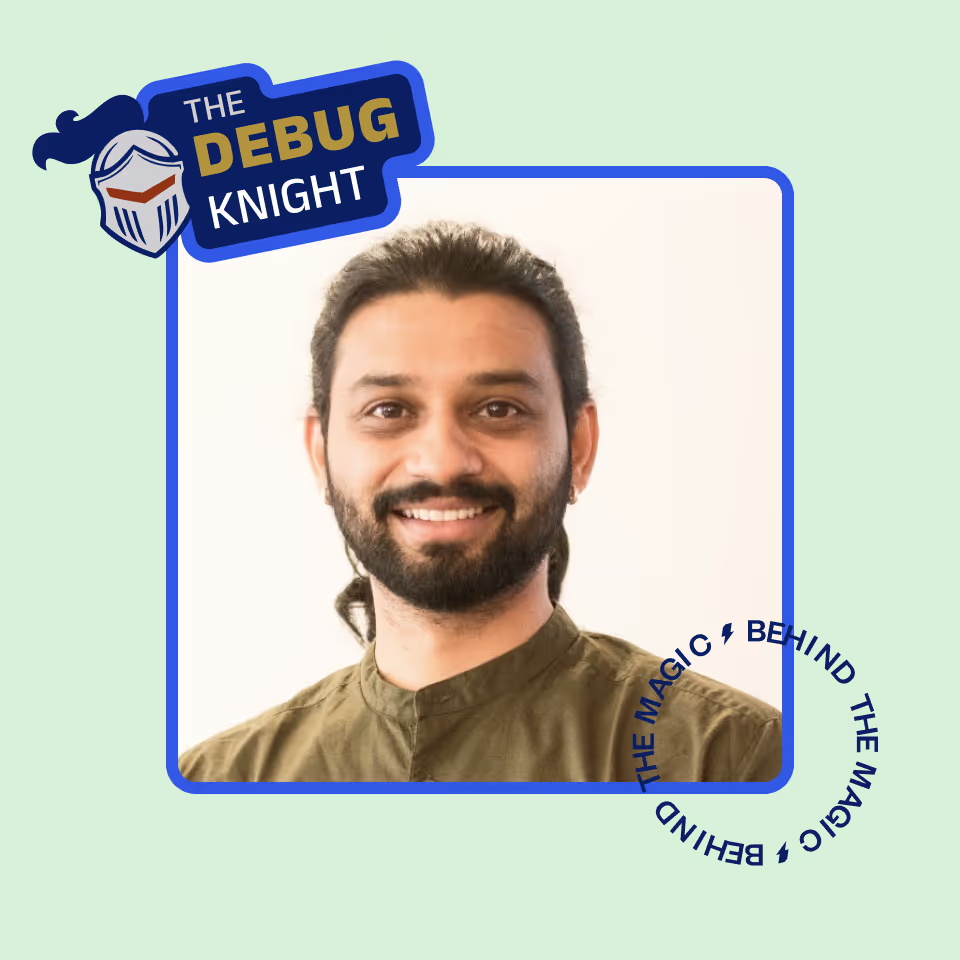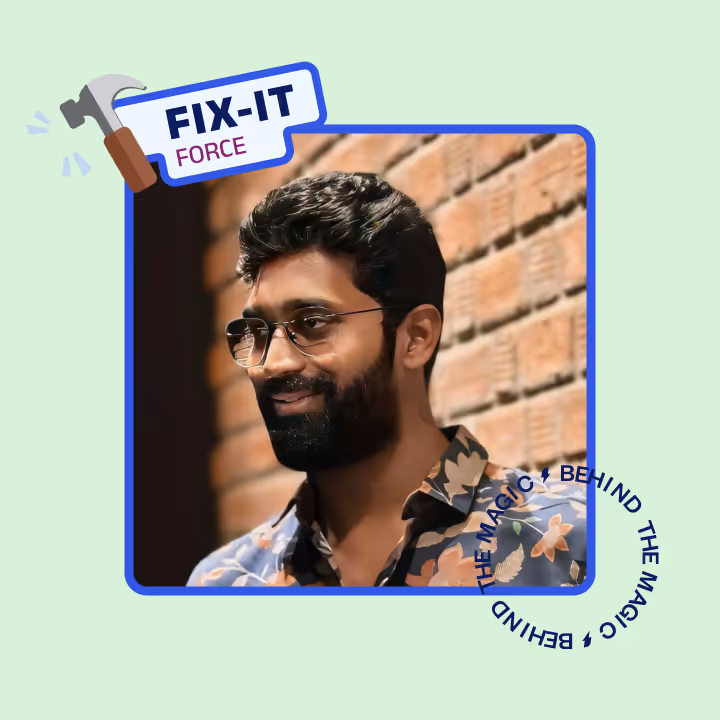What is your role? Describe what you do briefly at SpotDraft.
I'm a Senior Frontend Developer at SpotDraft. My main role is to build and maintain the user-facing elements of the app, alongside managing some microservices. I also lead my team, helping them grow.
How did you venture into frontend engineering?
I've always been a builder by nature. I played with construction toys growing up (even if it was a cheaper Lego alternative!). Initially, I wanted to be an Air Force pilot after being inspired by the movie "Lakshya." But things changed when I took computer science in 11th grade and discovered my passion for coding. Frontend engineering appealed to me because of the instant gratification: you write code, and immediately see what you’ve built on the screen. That quick feedback loop has always given me a dopamine hit and kept me hooked.
Growing up, what were your passions or interests?
I’m a big YouTube nerd. I love watching online content. Once a week, I make time to cook, a hobby I enjoy. Lately, I’ve also picked up sports with my colleagues like badminton, football, and even pickleball. Of all these, pickleball is the most fun for me, it’s a great balance of football’s physical intensity and badminton’s skill level.
Is SpotDraft a high-performance environment? How do you unwind? How do you find a sweet spot between work and life?
Early in my career, I struggled with unwinding and would often bring work home, which wasn’t sustainable. Nowadays, I try to leave work at the office. To relax, I watch YouTube or Netflix, and play games like FIFA and Mortal Kombat on my Xbox. My roommate and I are quite competitive. It’s always satisfying to beat each other in the game!
What sets SpotDraft apart from other places you have worked?
Before SpotDraft, I interned at a new startup, and later worked at a mid-sized service-based company. SpotDraft is my third company, and I’ve been here since October 2020. What sets SpotDraft apart is the people. They’re not just talented but genuinely approachable. Working with such a talented, supportive team has been my biggest motivation. Additionally, I’ve been fortunate to have the chance to make a direct impact on the product, and seeing users benefit from what I've built gives me immense satisfaction.

How did you plan your growth at SpotDraft?
I have been fortunate to have had opportunities to learn and grow in different areas. Initially, I focused on becoming a subject matter expert and took on complex projects to showcase my capabilities. When I felt that my growth as an engineer plateaued, I was given opportunities to explore management and product work. One thing that’s remained constant is the learning—I’ve never felt stagnant. During my probation, I faced challenges and struggled with a complicated project, but my managers were supportive and encouraged me to keep going. That support built my confidence and has been a big part of my growth.
What advice would you give to those who are starting in frontend engineering?
Build as many end-to-end projects as you can. Many people focus on competitive programming or memorizing algorithms, but from my experience, the most valuable skill is real-world project development. Employers appreciate a portfolio of completed projects. It shows practical experience. Also, bring passion and take ownership of your work. If you’re passionate about what you do, it won’t feel like work.
Having been at SpotDraft for a few years, how have you seen the company evolve, and what changes do you believe we should embrace or sustain in our culture?
In engineering, we have a strong core team that has remained intact over the years, which has helped us maintain solid working relationships. The product has evolved tremendously; it’s much more polished, and everything works better now. However, as the company has grown, some of the close-knit culture has naturally changed. While smaller inner teams still share that bond, the larger organization has shifted, and it’s harder to connect with everyone. The People team is doing a great job with month-end celebrations and offsites to bring back that connectivity, and it's been helpful. As we grow, it’s important to keep fostering those connections across teams.

.avif)






